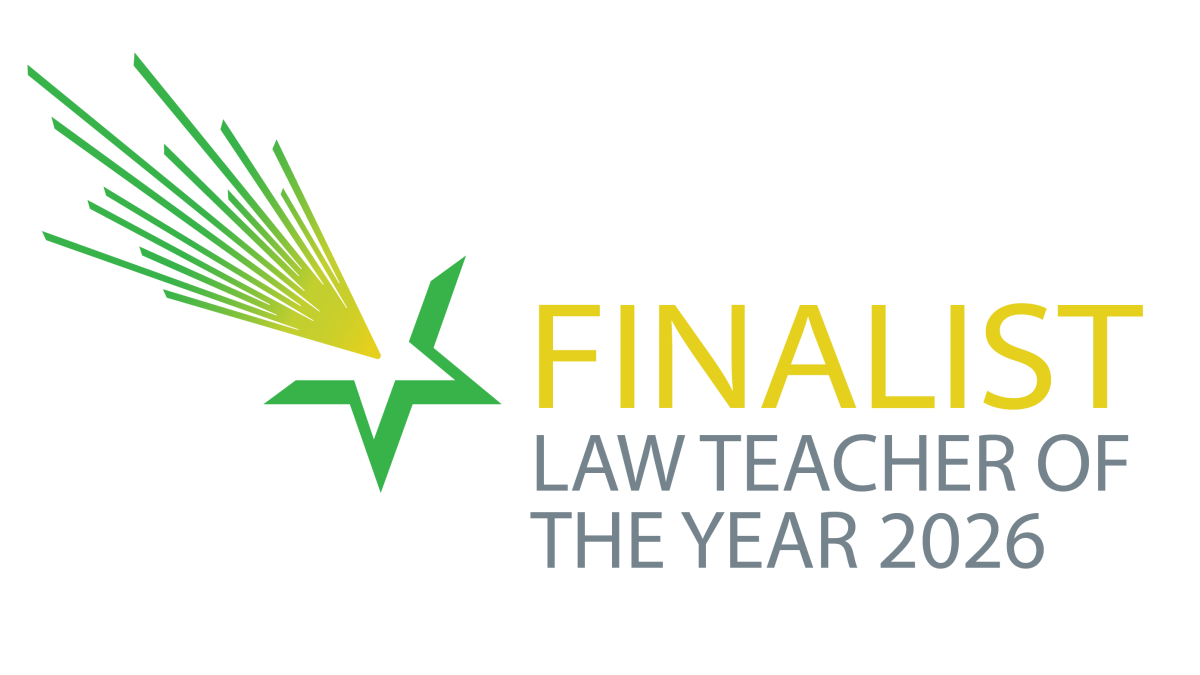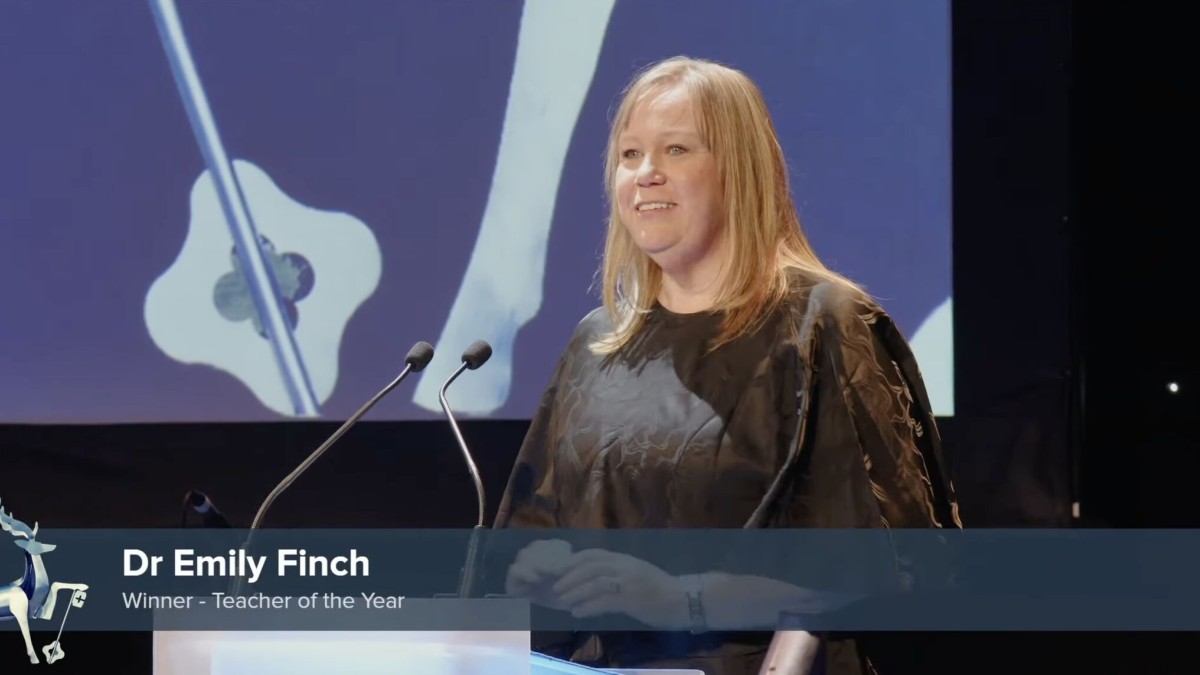
Dr Emily Finch
About
Biography
I have over 25 years of experience in higher education. My research combines empirical methods with policy relevance to explore issues such as jury decision-making, dishonesty, and the legal responses to psychological harm and relational abuse. I have supervised several doctoral students to completion and examined PhDs internationally. I am also a regular case analysis contributor to the Criminal Law Review and the monthly Judicial College Crime e-Newsletter which is sent to every judge in England and Wales.
I founded the Justice Café: a collaborative space bringing together students, practitioners and researchers to address pressing issues in law and learning through innovative empirical methods. My teaching innovations, including immersive assessment techniques and digital pedagogy, have consistently achieved exceptionally high student satisfaction ratings. I am also co-author of Legal Skills (OUP), a best-selling textbook now in its 10th edition and adopted by more than 50 universities worldwide. I won the University of Surrey Vice-Chancellor's Award for Teacher of the Year 2025 and am a finalist for OUP Law Teacher of the Year 2026.
My work has been supported by the British Academy, the Society of Legal Scholars, the ESRC and a range of industry partners. Beyond academia, I have contributed expert commentary to the BBC, The Times and Radio 4, and have advised organisations including the United Nations and the Social Research Foundation.
Areas of specialism
University roles and responsibilities
- OSCAR Panel Chair
My qualifications
Affiliations and memberships
Senior Fellows play a significant role in enhancing the quality of teaching and learning for others - through leadership, mentoring, curriculum development, or strategic influence - and make a demonstrable contribution at institutional or sector level that extends beyond direct teaching or learner support.
Awards
I won the University of Surrey Vice-Chancellor's Award for Teacher of the Year 2025 and am a finalist for OUP Law Teacher of the Year 2026.
News
In the media
ResearchResearch interests
My research, combining empirical methods with policy relevance, focuses on topics such as jury decision-making, dishonesty, and legal responses to psychological harm and relational abuse.
Conference papers
2026
5 February 2026, 'The Impact of Excluding Family Law from the SQE: Implications for Legal Education and Practice', CHULS Pracademia Project, Online
2025
9 December 2025, ‘Sound Off and Sort It Out: Embedding Reflection and Metacognition into Law Students’ Assessment Preparation’, Advance HE Educational Excellence Symposium, Online
26 November 2025, ‘Public Perceptions of Domestic Abuse and Coercive Control’, Gendered Violence Conference, London
4 November 2025, ‘Why Don’t They Just Do It? Reimagining Academic Legal Writing as a Dialogue Between Writer and Reader’, Advance HE Assessment and Feedback Symposium, Online
10 October 2025, ‘Creating “Safe Enough” Spaces for Academic Research: Supporting Researchers and Students in a Climate of Anti-Intellectualism and Polarisation’, Researching Sensitive Topics, Online
1 September 2025, ‘Public Perceptions of Domestic Abuse and Coercive Control’, SLS Conference, University of Leeds
2 July 2025, ‘Using the World Café as a Method of Criminological Research’, BSC Conference, University of Portsmouth
14 May 2025, ‘The Formative Menu and the Feedback Buffet: Student-Centred Approaches to the Problems of Formative Assessment’, Learning and Teaching Showcase, University of Surrey
2024
18 October 2024, ‘Promoting the World Café as a Method of Generating and Testing Ideas in Empirical Legal and Criminal Justice Research’, British Academy Networking Event, London
4 September 2024, ‘Working with Students to Enrich Legal Education using the World Café Method’, SLS Conference, University of Bristol
20 June 2024, ‘Understanding and Overcoming the Challenges of Formative Assessment’, Connecting Legal Education, University of Leeds
Research interests
My research, combining empirical methods with policy relevance, focuses on topics such as jury decision-making, dishonesty, and legal responses to psychological harm and relational abuse.
Conference papers
2026
5 February 2026, 'The Impact of Excluding Family Law from the SQE: Implications for Legal Education and Practice', CHULS Pracademia Project, Online
2025
9 December 2025, ‘Sound Off and Sort It Out: Embedding Reflection and Metacognition into Law Students’ Assessment Preparation’, Advance HE Educational Excellence Symposium, Online
26 November 2025, ‘Public Perceptions of Domestic Abuse and Coercive Control’, Gendered Violence Conference, London
4 November 2025, ‘Why Don’t They Just Do It? Reimagining Academic Legal Writing as a Dialogue Between Writer and Reader’, Advance HE Assessment and Feedback Symposium, Online
10 October 2025, ‘Creating “Safe Enough” Spaces for Academic Research: Supporting Researchers and Students in a Climate of Anti-Intellectualism and Polarisation’, Researching Sensitive Topics, Online
1 September 2025, ‘Public Perceptions of Domestic Abuse and Coercive Control’, SLS Conference, University of Leeds
2 July 2025, ‘Using the World Café as a Method of Criminological Research’, BSC Conference, University of Portsmouth
14 May 2025, ‘The Formative Menu and the Feedback Buffet: Student-Centred Approaches to the Problems of Formative Assessment’, Learning and Teaching Showcase, University of Surrey
2024
18 October 2024, ‘Promoting the World Café as a Method of Generating and Testing Ideas in Empirical Legal and Criminal Justice Research’, British Academy Networking Event, London
4 September 2024, ‘Working with Students to Enrich Legal Education using the World Café Method’, SLS Conference, University of Bristol
20 June 2024, ‘Understanding and Overcoming the Challenges of Formative Assessment’, Connecting Legal Education, University of Leeds
Supervision
Postgraduate research supervision
I would be pleased to supervise PhD projects exploring how criminal law responds to psychological harm, coercive control and relational abuse, as well as juror decision-making and dishonesty. I also have an interest in the role of family mediation. I particularly welcome empirical and interdisciplinary approaches that challenge assumptions and seek to improve understanding and reform within the justice system.
Completed postgraduate research projects I have supervised
Filipa Tavares Moreira, ‘The Imbalance of Bargaining Powers in Divorce Mediation’ (PhD, 2024)
Amel Ketani, ‘Improving the Practice of Family Mediation in England and Wales’ (PhD, 2022)
Ros Setterfield, ‘The Regulation of Revenge Porn in England and Wales: Are Existing Legal Solutions Effective?’ (PhD, 2019)
Amy Elkington, ‘A New Duress Defence and the Theory of Understandable Compliance’ (PhD, 2018)
Joshua Kerr, ‘Deprivation of Citizenship and the Immigration Act 2014: the Problems with Making British Citizens Stateless’ (PhD, 2018)
Teaching
My approach
My teaching focuses on shaping students’ early experiences of studying law in ways that build confidence, curiosity, and a strong sense of belonging.
My approach is grounded in the belief that students learn best when they feel supported, known, and genuinely welcomed into the discipline. I designed the intensive Legal Systems module with this principle at its core, in response to the challenges many students face when transitioning into legal study. I also convene the year-long Criminal Law module, where improvements in student engagement and progression have been closely linked to my curricular design and approach to assessment.
Reducing anxiety and building confidence sit at the heart of my teaching. I create structured, supportive learning environments that encourage students to take intellectual risks and see challenging material as a normal and rewarding part of learning, rather than something to fear. Even within large cohorts, I place strong emphasis on building individual relationships with students.
My student-centred approach to assessment was developed through my Legal Education Café, working collaboratively with students to understand the pressures they experience around coursework. This led to a seven-step formative support framework, including an “assessment menu” and “feedback buffet,” giving students greater choice and agency in how they learn and use feedback. In Criminal Law, I combine creative assessments, such as video and client-advice exercises, with more traditional forms of assessment.
Beyond formal teaching, I offer a range of inclusive learning spaces, including small-group Law Chats and Criminal Conversations, skills workshops, and creative initiatives such as the OSCOLA Referencing Escape Room. I am a co-author of a widely used legal skills textbook and, as a Senior Fellow of Advance HE and external examiner, I contribute to teaching and learning practice nationally through conference presentations, case studies, and workshops.
Ultimately, my aim is that students leave my classes not only with a strong understanding of law, but with greater confidence in themselves as learners.
My modules
Legal Systems (LAW1053)
Legal Systems is a four-week condensed module that provides students with the knowledge and skills they need to make an effective and confident start to their study of the law. The module introduces principles of the English Legal System using everyday examples of the law in action to make the study of legal concepts accessible and engaging for new students. It has a strong ‘learning by doing’ focus and the lectures are supplemented by interactive tutorials based upon the completion of practical tasks including negotiation and jury deliberations. The module covers core ‘lawyering’ skills to help students to ‘think like a lawyer and argue like a lawyer’ as well as equipping them with the research and writing skills they need from the very start of their legal studies.
Criminal Law (LAW1056)
Criminal Law is a year-long module that covers the fundamental principles of criminal liability and a range of offences and defences. It combines study of case law and legal principles with examples of criminal behaviour taken from contemporary and historic news stories and fictional accounts of crime and criminality. Students are encouraged to think critically about the purpose of criminal law in society and the nature of conduct that is criminalised. The module uses a range of assessments methods: students compile a case file and advise a ‘real’ client and work in groups to make a video as well as producing more traditional analytical written work. Great emphasis is placed on ensuring that students feel supported to study the module with confidence with optional extra sessions provided to help students to find their voice in tutorials, to strengthen problem solving skills and to deepen understanding of complex case law. The module also uses the formative buffet and feedback menu to encourage students to engage with formative assessment opportunities.
Publications
Highlights
Legal Skills (10th edn, OUP 2025)
A widely adopted undergraduate text supporting the development of core competencies for law students across the UK. Now in its 10th edition, with around 100,000 copies sold, the book is recognised for its practical guidance on legal research, writing, problem-solving, advocacy, negotiation and professional ethics. Designed to support students from their first year through to final assessments, it has become a foundational resource in legal education.
https://global.oup.com/ukhe/product/legal-skills-9780198924722
Chapter 1 in Sotirios Santatzoglou, Martin Wasik, Anthony Wrigley (eds.) 'Dishonesty, Liability and the Law: Exploring the Moral Importance of Context' (Routledge, 2025)
Despite its serious consequences in criminal and professional contexts, the law provides little clear guidance on how dishonesty should be defined or determined. This chapter draws on empirical research into public perceptions of dishonesty to highlight the lack of a shared understanding and argues for a clearer, more accessible legal definition to support principled and consistent decision-making.
[2022] 5 Criminal Law Review 358-378
We live in a world in which we are urged to #bekind and where there has never been greater awareness of the impact of cruel behaviour on an individual's mental wellbeing. As such, it seems unfathomable that the criminal law only concerns itself with damage to a person's state of mind if it falls into a narrow, arbitrary and artificial clinically-defined category. This article argues that this restrictive interpretation of preceding authorities in Dhaliwal was wrong and a more expansive approach would strengthen the law and create much-needed parity between physical and non-physical harm.
[2021] 7 Criminal Law Review 513-531
Many words have been written in the debate about the correct stance on dishonesty in criminal law. The long-standing Ghosh test was much criticised but is the new approach formulated in Ivey an improvement or does it simply create a different problem? This article explores this question from the perspective of the practical workability of the tests in the courtroom by using data from a mock trial to assess the extent to which mock jurors were able to understand and apply four different approaches to dishonesty.

